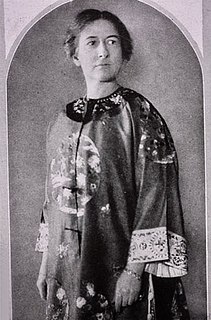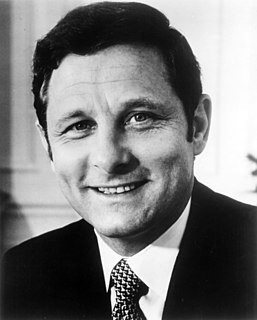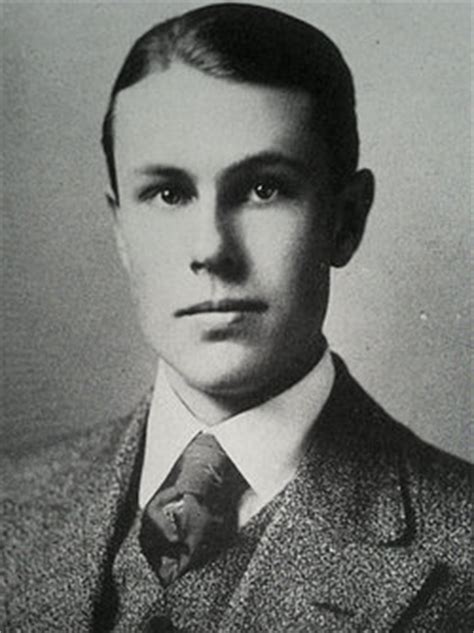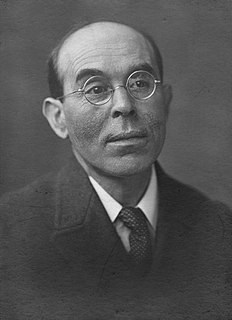A Quote by Ayn Rand
About Mike the construction worker, friend of Roark: "He worshipped expertness of any kind. He loved his work passionately and had no tolerance for anything save for other single-track devotions. He was a master in his own filed and felt no sympathy except for mastery. His view of the world was simple: there were the able and there were the incompetent; he was not concerned with the latter."
Related Quotes
The barbarians of Germany had felt, and still dreaded, the arms of the young Caesar; his soldiers were the companions of his victory; the grateful provincials enjoyed the blessings of his reign; but the favourites, who had opposed his elevation, were offended by his virtues; and they justly considered the friend of the people as the enemy of the court.
This was one of the greatest test of his faith he had ever experienced. The thought of deceiving the kind and faithful wife of his youth... was more than he felt able to bear.... his sorrow and misery were increased by the thought of my mother hearing it from some other source, which would no doubt separate them, and he shrank from the thought of such a thing, or of causing her any unhappiness.
There were times when it appeared to Dorian Gray that the whole of history was merely the record of his own life, not as he had lived it in act and circumstand, but as his imagination had created it for him, as it had been in his brain and in his passions. He felt that he had known them all, those strange terrible figures that had passed across the stage of the world and made sin so marvellous, and evil so full of subtlety. It seemed to him that in some mysterious way their lives had been his own.
But nobody else ever romped with White Fang. He did not permit it. He stood on his dignity, and when they attempted it, his warning snarl and bristling mane were anything but playful. That he allowed the master these liberties was no reason that he should be a common dog, loving here and loving there, everybody's property for a romp and good time. He loved with single heart and refused to cheapen himself or his love.
By the time Kafka was seven or eight years old, he already had a relatively dark view of the world derived from experiences in his own family. This told him that the world was organized in a strictly hierarchical manner and that those on the top were allowed to mete out punishment in any way they chose. They were entitled to leave those on the bottom uninformed about the rules to which they subscribed; they weren't even required to follow their own rules - this is how Kafka described it in his later Letter to My Father.
The only distinction between freedom and slavery consists in this: In the former state a man is governed by the laws to which he has given his consent, either in person or by his representative; in the latter, he is governed by the will of another. In the one case, his life and property are his own; in the other, they depend upon the pleasure of his master. It is easy to discern which of these two states is preferable.
For a long time I felt that FDR had developed many thoughts and ideas that were his own to benefit this country, the United States. But, he didn't. Most of his thoughts, his political ammunition, as it were, were carefully manufactured for him in advance by the Council on Foreign Relations - One World Money group. Brilliantly, with great gusto, like a fine piece of artillery, he exploded that prepared "ammunition" in the middle of an unsuspecting target, the American people, and thus paid off and returned his internationalist political support.
His parents never talked about how they met, but when Park was younger, he used to try to imagine it. He loved how much they loved each other. It was the thing he thought about when he woke up scared in the middle of the night. Not that they loved him--they were his parents, they had to love him. That they loved each other. They didn't have to do that.
He who is himself crossed in love is able from time to time to master his passion, for he is not the creature but the creator of his own misery; and if a lover is unable to control his passion, he at least knows that he is himself to blame for his sufferings. But he who is loved without reciprocating that love is lost beyond redemption, for it is not in his power to set a limit to that other's passion, to keep it within bounds, and the strongest will is reduced to impotence in the face of another's desire.
In the first seat, in robe of various dyes,
A noble wildness flashing from his eyes,
Sat Shakespeare: in one hand a wand he bore,
For mighty wonders fam'd in days of yore:
The other held a globe, which to his will
Obedient turn'd, and own'd the master's skill:
Things of the noblest kind his genius drew,
And look'd through nature at a single view:
A loose he gave to his unbounded soul,
And taught new lands to rise, new seas to roll;
Call'd into being scenes unknown before,
And passing nature's bounds, was something more.
Man never ceases to seek knowledge about the objects of his experiences, to understand their meaning for his existence and to react to them according to his understanding. Finally, out of the sum total of the meanings that he has deduced from his contacts with numerous single objects of his environment there grows a unified view of the world into which he finds himself "thrown" (to use an existentialist term again) and this view is of the third order.






































